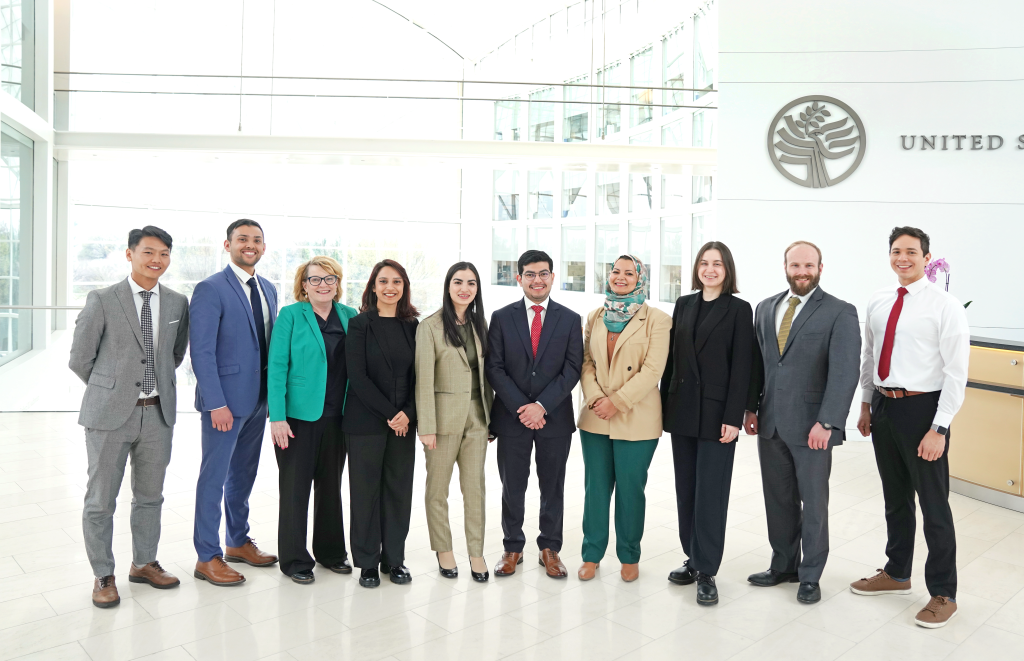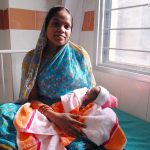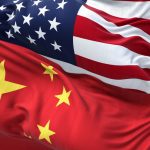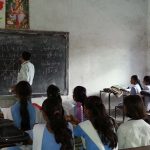As policymakers work to proactively promote peace in some of the world’s most vulnerable countries, Keough School students are helping them reimagine the possibilities.
Eight master of global affairs students are working on research projects, conducted through the Keough School’s Integration Lab (i-Lab), that will support the implementation of the Global Fragility Act (GFA). Passed in 2019, the bipartisan measure aims to help the US government approach conflict prevention and stabilization more effectively.
Students recently traveled to Washington, DC, during their spring break to discuss their work with policymakers. A busy slate of meetings allowed them to consult a wide range of experts from government agencies, nongovernmental organizations, think tanks, and the US Congress. The input they gathered will help them design projects that support the GFA.
The goal is that students’ research will inform the US Department of State and Department of Defense as the agencies, working with stakeholders worldwide, forge conflict prevention partnerships with government and civil society representatives across coastal West Africa. The region, which the Biden administration in April identified as a key priority under the GFA, includes Benin, Côte d’Ivoire, Ghana, Guinea, and Togo.
A bold policy experiment
Implementation of the GFA provides an opportunity for students to leverage the Keough School’s expertise and global connections and influence a significant attempt to rethink peace policy. Past US efforts to address violent conflict have been reactive, and experts in different agencies have struggled to collaborate effectively across a sprawling federal bureaucracy.
The GFA aims to change that with a coordinated, whole-of-government approach that focuses on prevention and proactively strengthening fragile states. Such countries suffer from weak government capacity. Without assistance, they remain vulnerable to a range of shocks that can allow them to become breeding grounds for violent conflict.
Consultations shape and refine research
Keough School students are seizing the opportunity to make a difference through their research. David Campos, a student from New York, said the recent Washington experience provided i-Lab participants with helpful perspectives on how they can contribute to the success of the GFA.
“The trip was eye-opening,” Campos said. “It enabled us to explore stakeholder mapping and provided a unique perspective on the need for coordination among the State Department, the Defense Department, and USAID to assist fragile states. It also helped us consider what questions we should ask in our project interviews and how we can promote an environment where cooperation is better facilitated.”
Our i-Lab team projects have two distinctive components: students conduct research and consult with stakeholders to gather input and incorporate it as part of project designs.
Alan Medina Hernández, the i-Lab’s program manager, hailed the consultations as a way to work smart and ensure that projects make a substantial contribution to the new peacebuilding approach.
“Our team projects have two important components that make the experience distinctive,” he said. “Our students conduct research, and importantly, they also consult with stakeholders to gather their input and incorporate it as part of the project designs.”
Time and again, these stakeholder meetings yielded fresh insights. Ishika Sharan, a student from India, emerged from a briefing with congressional staffers with a newfound appreciation for how legislators prefer to work with agencies. Congress wants to see them learn from mistakes and make adjustments as they seek additional implementation funding, Sharan learned.
“We gained a lot of perspective on government expectations for a new framework of interagency coordination,” she said. “It was helpful to know that Congress is willing to acknowledge failures, learn from them, and change approaches.”
At a meeting with Peter Quaranto, director of the Office of African Affairs for the State Department’s Bureau of Conflict and Stabilization Operations, students explored a key theory of change that can inform their work. The idea: addressing group inequality and exclusion is crucial to preventing conflict and building more stable societies. Quaranto highlighted related insights from Pathways for Peace: Inclusive Approaches to Preventing Violent Conflict (a joint study from the United Nations and the World Bank) to guide and measure prevention efforts.
“In Africa and elsewhere around the world, excluded communities and group divisions can fuel conflict risks,” said Quaranto, a 2006 Notre Dame graduate and former faculty member at the Keough School. “Efforts to reduce marginalization and exclusion and strengthen cohesion will make violent conflict less likely. At the same time, nonviolent dispute resolution skills are critical to help communities cope with external shocks and avoid instability.”
Additional meetings with representatives from the Alliance for Peacebuilding, USAID, the United States Institute of Peace, the Department of Defense, the RAND Corporation, and the Center for Strategic and International Studies helped flesh out key questions and shed new light on students’ unfolding projects.
Policy-relevant projects
Insights gleaned during the Washington trip will continue to help students as they finalize the first phase of their projects—clarifying and refining the shape and scope of their research. The second phase will feature worldwide travel to consult with multiple stakeholders as part of the i-Lab’s global partner experience. It will also include up to eight weeks of field work this summer in coastal West Africa, where students will conduct interviews with local leaders and experience firsthand the societies they are working to assist. They will complete the final phase, developing and disseminating deliverables, during the fall semester.
Ultimately, we want students’ research to inform the work policymakers and government officials do to implement significant initiatives.
Now, having built relationships during the Washington visit, students have set themselves up for success once they have produced reports that can inform the ongoing work of the GFA.
“When they finish their fieldwork and deliverables, they will have an audience to return to,” said Maura Policelli, associate professor of the practice for the Keough School and the executive director of its Washington Office. “Ultimately, we want students’ research to inform the work policymakers and government officials do to implement significant initiatives such as the Global Fragility Act.”
Learn more about the Keough School’s Integration Lab (i-Lab)



